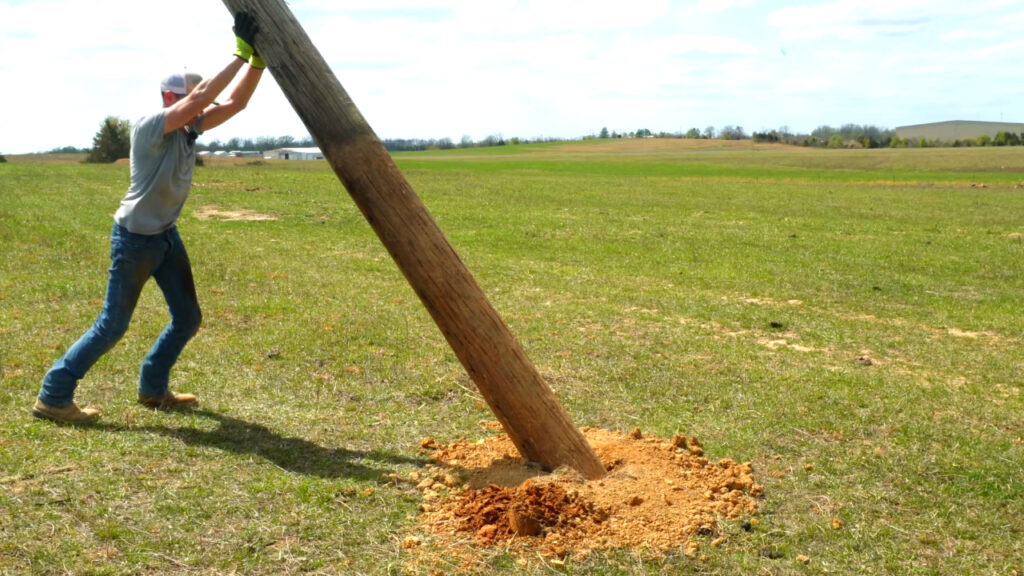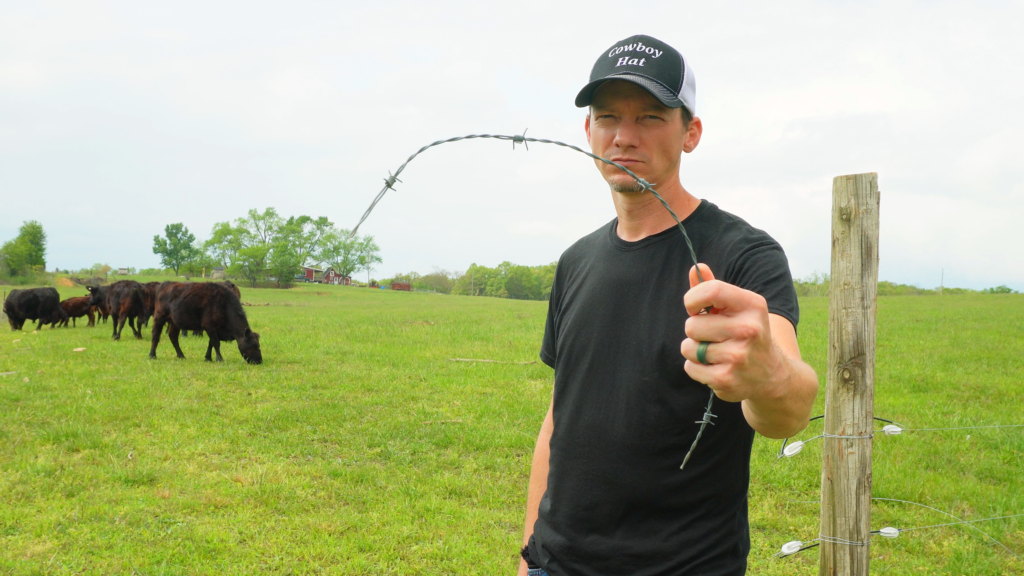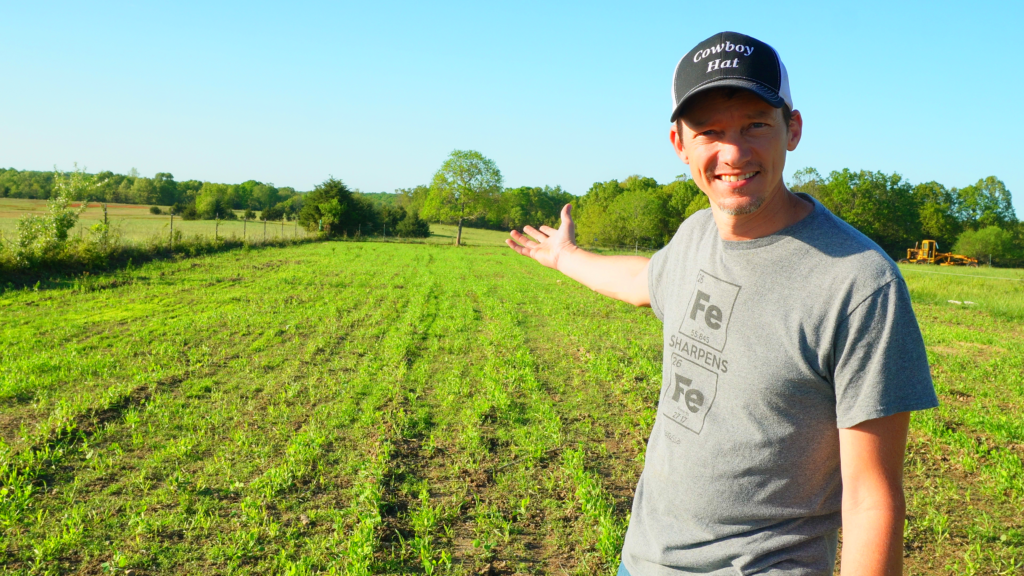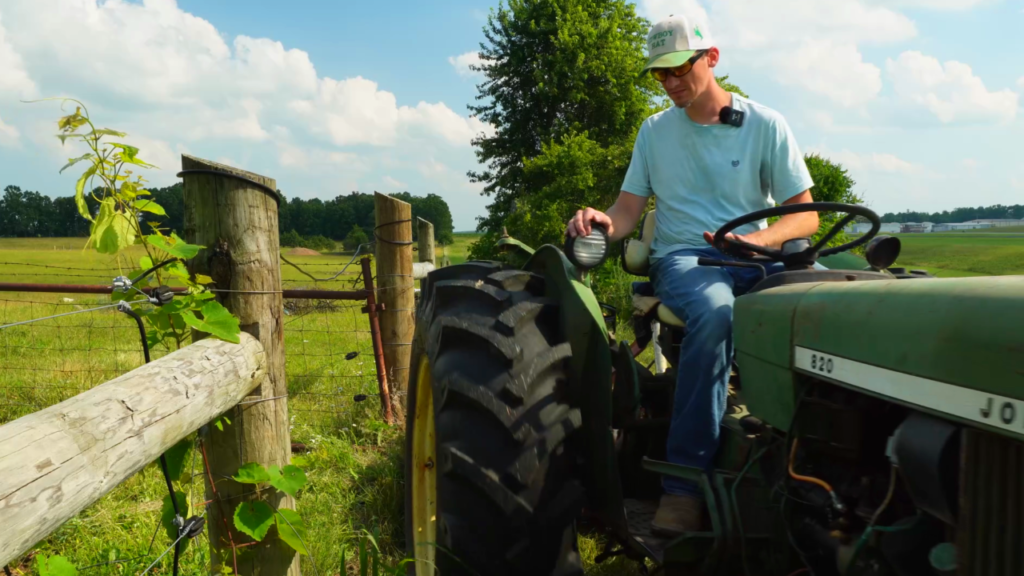How to farm the right way. This has been on my mind lately and it’s got me to thinking, are we doing it all wrong? Or, maybe we just do it all a little differently.

There’s a Jeff Foxworthy video going around where Jeff says that when he was a child, Truett Cathy, the founder of Chick-Fil-A, asked him how to tell if someone needs encouragement. He says that Mr. Cathy told him you know someone needs encouragement if they’re breathing; everybody needs encouragement.
Be an encourager
I came to the realization a long time ago that the farming industry has far more than its fair share of so called “experts”. What we’re lacking is cheerleaders, or advocates. Encourager is probably the word I like the best.
I know that have some pretty strong opinions about things that I like and things that I don’t. If you want to know what my opinions are, watch my videos. You could also check out this post if you are interested in my opinion of barbed wire fence With that being said, I don’t claim to be some sort of authority or expert on any subject. I’m just telling you what I do, why I do it, and how it might be helpful to you. If it’s not something you’re interested in, that’s ok. I promise.

We’ve somehow lost the ability to disagree and still be friends in our society today. What used to be friendly ribbing back and forth between folks on opposite sides of the fence has, in at least a few cases, turned into hatred. I’ve seen people get seriously mad over a joke about what brand of truck they drive or what color their tractor is. I’ve made a handful of videos about high tensile electric fence, and I’ll be the first to admit that I have some pretty strong feelings about why I prefer it to other fencing methods, especially barbed wire. But I’m not so dense as to miss the fact that I’m in the minority. In fact, I was giving a guy directions to my house, he had bought something from me, and he says, “oh, yours is the place with all of that new weird looking fence.” Yes sir, it is. Some folks may have taken that kind of comment personally and gotten themselves all bent out of shape. To me it only reinforced what I already knew, that my neighbors think I’m weird.
Farm Your Own Way

The point is that you don’t have to fit someone else’s definition of whatever it is that you’re trying to do. I know of a farmer that has a pretty large pasture poultry operation who started out by using the Joel Salatin style chicken tractors. (If you don’t know what those are, they’re 10 foot by 12 foot boxes that are 2 feet high with tin covering half of the sides and most of the top and chicken wire, on the rest. They’ll hold a max of about 100 meat birds. There are a lot of pastured poultry farms using those to great success because they’re cheap, easy to build, and most importantly they get the job done.)
So, this farmer discovered that the high heat and humidity in the area, during the dog days of Summer, only served to cause his chickens to suffer heat stroke when they were in those pens. He started calling his Salatin style pens his “easy bake ovens”. He ended up designing his own style of chicken tractor that has served him very well for several years now. He didn’t give up because things didn’t work the way he thought they would, but he changed his plans and adapted so that he could continue on and accomplish the goals that he had set for himself. If you ask me, he’s a real farmer, not because he fit’s someone else’s description of a real farmer, but because he has the sense to recognize a problem and find a solution that works for him so that he can keep going.
Be Aware of Your Local Market
Here’s another one. I’ve mentioned that my buyers aren’t all too concerned about grass fed, grass finished beef. They’re also not all that concerned about GMO feeds. They’re more concerned about supporting local farmers, so long as they can afford it. Now I could dig my heels in and say, “No! Grass finished beef and non-GMO fed pork and poultry is the only way and I’ll never do anything else.” Of course, I’ll have to charge more because the feed is quite a bit more expensive and I have to travel a long way to get it. I’ll be taking stand on principle. I’ll probably go broke, but I’ll be able to stand on principle.
Learn to Pick Your Battles
The same is true for chemical products. Weed killers, wormers, fly control products, fertilizers. I don’t like the idea of being reliant on chemical products, but that doesn’t mean that I won’t use them if necessary. I do use weed killers in my fence rows because I don’t have the time to physically control the briars, vines, and trees that want to grow up in my fences. I have to pick my battles.
That’s probably one of the most important lessons for us to learn, to pick our battles. On July 1, 2015, my oldest child was diagnosed with leukemia at the age of 3. At the time I was completely sold on the idea of a chemical free lifestyle. My mind changed pretty quickly when it became an issue of survival. We could have tried holistic treatment, but I wanted to do what was proven to save the lives of 9 out of 10 kids with my daughter’s illness. That’s what we did. That was 9 years ago, and my daughter is healthy today.
Like I said, you have to pick your battles. Don’t worry about what other people think. Don’t worry about what other people consider to be right, or genuine, or authentic. Do what is best for you, in your situation. Do what is going to help you reach your goals. Other people, experts or laymen, do not get to tell you what is real.
You Know Yourself Better Than Anyone
I’ve honestly heard people talk about farmers with seasonal allergies being weak. If that’s the case, I’m in trouble. There’re certain times of the year that I can hardly stand to be outside. I also like to wear shorts when it’s hot and tennis shoes because most boots hurt my feet. I’ve honestly been told that I’m not a real farmer because I hated hauling hay as a kid. There’s this thought that if you can’t rebuild a tractor in a day, change your own tires, bale your own hay, or do everything exactly like they tell you, or exactly how they think is right you’re not a real farmer. How foolish.

There’ve been times that I honestly wouldn’t be surprised to hear someone say, “well you’re not a real farmer unless you’re miserable.” If you have to be miserable all the time to be a real farmer, I guess I don’t want to be a real farmer. I want to be a happy, profitable farmer and deep down I’m guessing that’s what most others in this small scale ag community want as well.